stackconf is back and better than ever! Today started off very strong with a few new additions and great speakers that gave us an insight to a variety of topics.
This being my first year at the conference, it was very exciting to get to started and involved with all the action and flow of all of the people coming together to learn something new. Right from the get go, you can see the amount of work that the Events Team put into making stackconf happen and the fact that it is all done online is really quite impressive. Of course we had the event online last year, but you can really see that this year has really been refined and delivered to a very high quality.
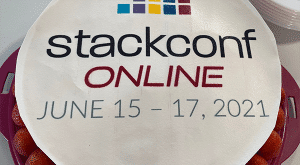
We’ve had a stackconf cake!
Before the conference had even started, people had already started communicating in the Rocket.chat channel and this year they also had the opportunity to be “present” at the event. This year we made our own conference in the form of Work Adventure! This gave people the chance to walk around with their character and interact with people as if they were really there! This gave everyone the chance to be able to „meet“ with other people at the conference and have their very own chats with one another. The ones that didn‘t want to talk right away were busy sprinting around the conference area (me being one of them…).
We had a great kick-off from Bernd and Christian, who were both looking very smart and ready to guide us through the first day of stackconf!
Spot the Antipattern and the IKEA effect
Jumping into the first talk of the day Arushi Jain from Reddit kicked things off with her topic on Spot the Antipattern. Arushi showed us how to spot an Antipattern, why they exist and what we can do to help identify and avoid such patterns. This was also a very honest topic as Arushi went through some of the problems Reddit faced themselves and the systems they were using. She also talked about the use of certain methods and how sometimes they can be falsely used in lots of other applications instead of the ones they are meant for. An interesting point I picked up was the IKEA effect, where people that have made something themselves they have a hard time letting go and this was a very good comparison to code and current workplaces practices.

Katja tweeting.
Looking into our second talk, we’re greeted by Ara Pulido as she showed us Policy as code in Kubernetes with OPA and Kubernetes. This was another interesting topic and for those of you who are up to date with K8s, you would have found this talk very informative. Ara showed how some policy rules can be implemented to Gatekeeper so that pods can only be launched once they have reached a specific set of criteria. This can help avoid a wrong deployment and keep everything organised and working together. We got a quick look at the OPA Ecosystem, some constraint templates and a short demo on auditing pods to check to see if they are performing as planned.
We were gracefully transitioned through the talks by Bernd and Christian, who kept us chatting and talking in the channels whilst keeping the pace with all of the talks that went on today. Great job lads!
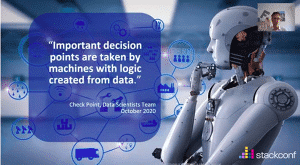
From Peter Elmer’s talk.
Our next speaker Peter Elmer came by with a very interesting topic about Data Driven Security. This gave us an insight into machine learning and how they incorporate data to make their programs „smarter“. Peter went into more detail as to how logic is created from data and turning decisions from a probabilistic factor to a more determining one. He also looked at how we can prevent attacking by defending at the source. This is a hot topic at the moment and also one to watch for the future.
Pragmatic application migration
Our next topic came from Nicolas Fränkel and he talked about Pragmatic application migration to the cloud with Quarkus, Kotlin, Hazelcast and GraalVM. Nicolas gave us some points as to why using the cloud is such a great idea and the benefits of doing so. He then went onto explain the different methods used when transitioning to the cloud and the drawbacks of having to rewrite everything from scratch. Alternatively, the use of JVM although it has a slow start up time, can be run once everywhere and adapts to the current workload. At the end Nicolas gave us a quick demo on a URL shortener, very cool!

Yummmm: stackconf and icescream!
To help break up the pace after lunch, we had two Ignites which were quick snippets of two very interesting presentations from Lawrence Finn and Tadeh Hakopian.
Lawrence talked to us about a cloud-sidecar application which sits next to your application and speaks to cloud services for you. The application even thinks it‘s talking directly to the cloud services!
More training methods are always better
Tadeh Hakopian then came by and talked to us about the importance of visuals when teaching code and reducing bias. Tadeh helps explain that removing barriers and using visuals helps make the first steps of developing easier and less scary when starting out. We have all been there before and looked at code thinking that it is something from The Matrix. Another good point he mentioned was that more training methods are always better, which is true as not everybody learns the same and this opens up a lot of opportunity for people that think differently. These methods help people build better room designs for example or build buildings more efficiently.

From Ricardo Castro’s talk.
Getting back on track with our talks, Ricardo Castro enlightened us with GitOps: yea or nay? Ricardo showed the advantages of using GitOps like enhanced productivity, stability and reliability.
He also went into the usefulness of rollback with applications as it is on the same basis of git we are all used to. The idea is to have a lot of it automated and out of the box integration. We then got the chance to see it in action with a demo of flux deploying an application and showing us how it pulls the information needed to work.
The scaler is very clever
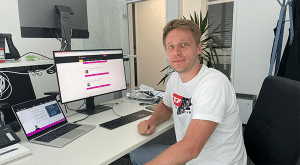
Sebastian, Head of NWS, at stackconf.
Our next talk came from Bram Vogelaar and his topic on Autoscaling with HashiCorp Nomad. Bram gave us a brief look at how scaling was done in the past and how it has proceeded up until now. The great thing with Nomad is that is follows a very simple procedure, Keep It Simple Stupid. He showed us how easily the code is written and how the autoscaler works based on checks. The scaler is very clever as it is able to swell in order to keep up with demand, so you never run out of resources, and reduce them again so they aren’t being wasted.
Diego Ciangottini was up next to talk about Setup Min.io and Open Policy Agent for a multi purpose scientific platform. Diego brought up the demand for computing resources for the INFN communities, that are based all over Italy and their need to be able to obtain these resources. This very interesting and complex project looks at various computing challenges for data storage for multiple communities and the sustainable reuse of data. He then gave us a quick look at the solutions and user management with MINIO.
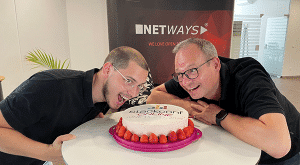
Our stackconf organizers Markus and Lukas.
Our next speaker was Matt Jarvis with a talk about the importance of Continuous Security – integrating security into your pipelines. Matt explained how the line between the roles of developers and security is increasingly getting blurred and how there is a need to bring the security checks to a developers level and the tools needed to do so. Of course this means a greater responsibility, which is why Snyk is there to help the Devs when checking their Pipelines a whole lot easier. Matt also went over some current flaws with current images and containers and then showed us how they could be checked and corrected by Snyk. Another great topic from our speakers.
We accidentally created a cloud

Great job, moderators!
Our last awesome speaker of the day was JJ Asghar and his very interesting topic, We accidentally created a Cloud on our IBM Cloud. JJ starts off with how everything started with ‘for loops’ on bash and the problems they faced and how they moved on to learning and using python scripts instead. Now as things have improved JJ explained the use of AWX and using Ansible playbooks to help run the code for you. With the help of their kubeadmin IBM are able to control a multitude of clusters all at once.
Although people may have been a little shy on the first day, which is understandable, the general atmosphere and communication from everyone was fantastic. We had a strong start to stackconf and we have a great feeling for more on what is to come. Our guests and speakers will have plenty of opportunities to mingle with other tech-heads and ask plenty of questions in the coming days. Keep up to date with everything that is going on and come and join the fun, it‘s free!
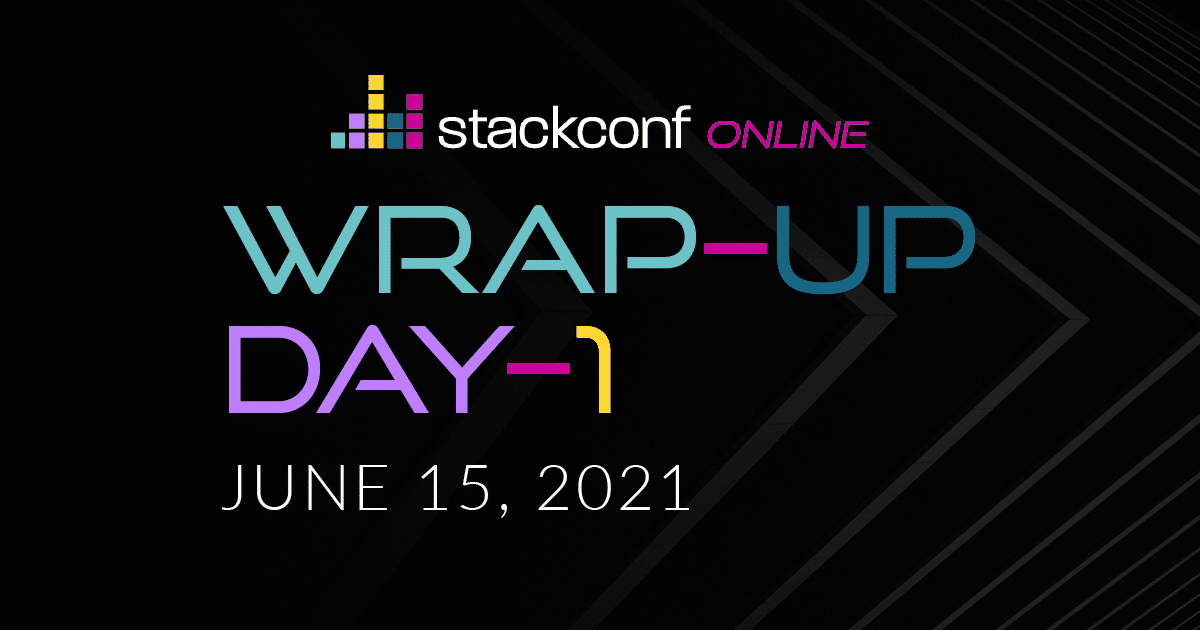





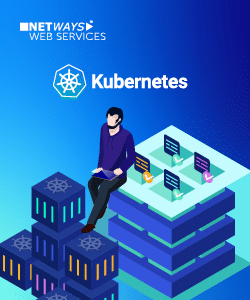
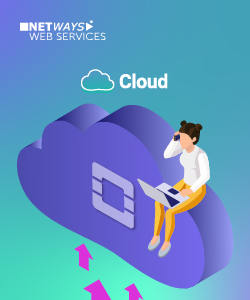
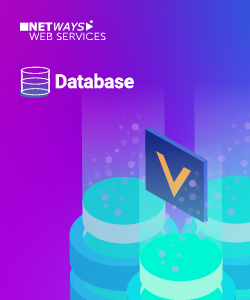
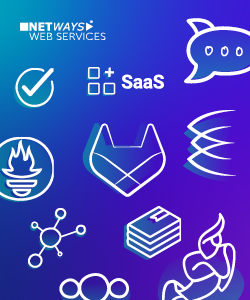
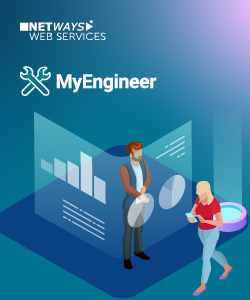
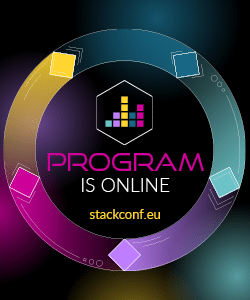


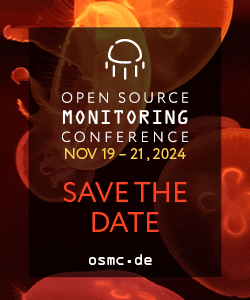



0 Comments